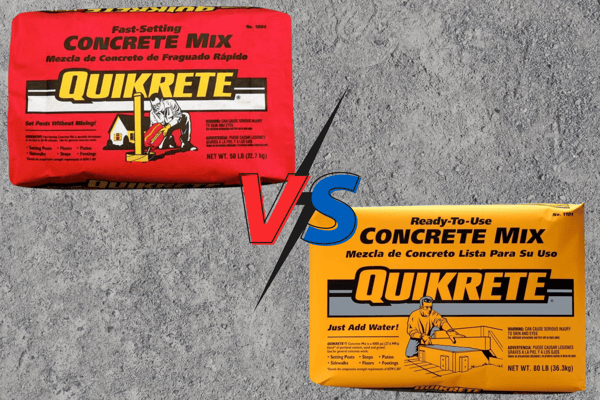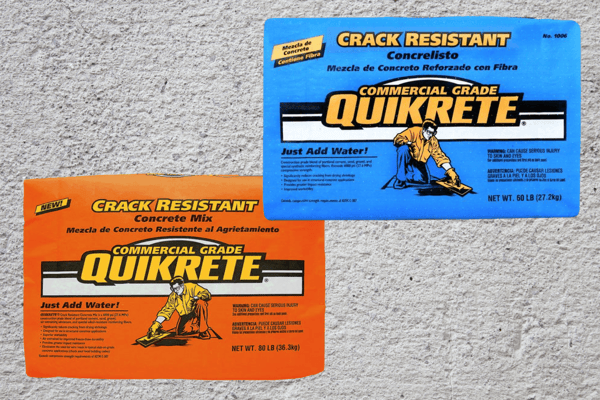How much is a yard of concrete? This is a simple question with a not so simple answer. Concrete is made differently depending on its usage.
If you are creating a concrete wall for aesthetic purposes, you don't need it formulated to support heavy loads. However, if you are paving an airport hangar floor then you'll want high-strength concrete to support the weight of an airplane.
Let's take a deep dive into the different types of concrete, and then we will discuss how to properly calculate the volume and its corresponding price.
Types of Concrete
The most important consideration before buying concrete by the yard is to have a good idea of how strong it needs to be. This, of course, depends on where and how it will be used.
Strength
The strength of concrete is measured in psi or pounds per square inch. Whatever the PSI rating is is what the concrete can support in weight. On average concrete ranges between 2,000 psi and 4,000 psi, which means that a 3,000 psi concrete can support up to 3,000 pounds of weight on a single square inch.
That's pretty strong, right? Well, concrete can be formulated to hold up to 20,000 psi for special high-strength support. This means that if your building that wall you can stay at the lower end of strength, while conversely if you are paving a driveway or garage you need a stronger blend.

Quick Set Versus Regular Concrete
Before you calculate how much is a yard of concrete you need to choose a type, quick set, or regular concrete. They can harden to the same psi in some cases, however, the application you are using it for will affect your choice the most.
Quick set concrete can harden in 20 to 40 minutes. This is ideal for smaller applications. Regular concrete hardens between 24 and 48 hours. High strength concrete will dry in under 12 hours.
Regular concrete's drying time will give you more time to complete larger applications. You'll need to pour an entire driveway, level the concrete properly, and brush it off for a smooth finish, and that can take hours. If half your driveway dries before you finish you run the risk of an uneven surface and other unsightly blemishes.
Quick set concrete is perfect for pouring fence post footings or deck post footings. They are small sections that you'll want to set fast to get on with your fence or deck construction. It's also great for fixing small areas in walkways or the like.
High strength concrete is used for major construction applications like foundation slabs. While it dries a little faster than regular strength it still affords you the time to pour, level, and smooth out the surface for use.

Crack-Resistant Concrete
Crack-resistant concrete by the yard is made by mixing a polymer or epoxy into the concrete. This is important if durability is a concern for high-traffic areas like walkways.
Weather can also be a reason to use crack-resistant concrete. Intense fluctuations in heat and cold can cause concrete to expand and contract, increasing the risk of cracking. A good concrete sealer might also be called for depending on the situation.
How Much Is a Yard of Concrete In Volume?
In terms of determining the quantity you'll need, there are online concrete calculators you can find to help you. Solving for volume is the proper way to calculate, which is simply length x width x depth. One thing to remember is you normally measure in feet and inches, but the standard concrete is measured by is in cubic yards, so you must make the conversion.
If you are estimating a job you should always have a calculator, whether it's a pocket one or an actual concrete calculator downloaded to your phone or tablet.
Using a simple 10-foot by 10-foot area with a thickness of four inches you would multiply length x width to arrive at 100 square feet. Now you must convert your depth from inches to feet which are inches divided by 12. In this case, you arrive at 0.33 feet.
Now that everything is in feet, you multiply your depth of 0.33 by your surface area of 100 and arrive at 33 cubic feet. Converting to cubic yards is done by multiplying this number by 0.37 and you get 1.22 cubic yards as your total.
It is standard practice for professional contractors to add 10% for uneven surfaces and spillage. You'll avoid having to make partial orders from your concrete supplier if you end up needing more. Partial orders come with surcharges so best to get it right the first time.
How Much Is a Yard of Concrete In Cost?
The pricing of concrete varies widely depending on where you are and how much you order. Obviously, buying in bulk will get you a better price per cubic yard. That's because there are fixed costs to delivering your concrete, whether it's three yards or 10 yards, so there aren't any price calculators to employ.
You'll have to take your measurements and contact several suppliers to get pricing.
As a general rule, you'll find concrete priced between $140 and $200 or more per cubic yard. If you are ordering a full load of 10 cubic yards the price will be somewhere in the $1,000-$1,300 range. With the fixed costs spread over the 10 cubic yards, the price becomes cheaper.
Be sure you ask about other fees like short load fees and weekend delivery fees. These will cut into your profit if not properly accounted for.

Partner With a Professional
When figuring out how much is a yard of concrete for your next project, if you follow the above advice you'll find yourself on the right track. Yet there are many facets to consider when working with concrete that goes beyond the simple pouring process.
At On Floor Technologies, we pride ourselves on be a leading manufacturer of restoration tools and planetary resurfacing equipment. We can help you with all of your concrete concerns.
Feel free to contact us to schedule a demonstration. One of our professional staff will be happy to walk you through our extensive line of products. They'll help you find the best equipment for any project.

0 comments